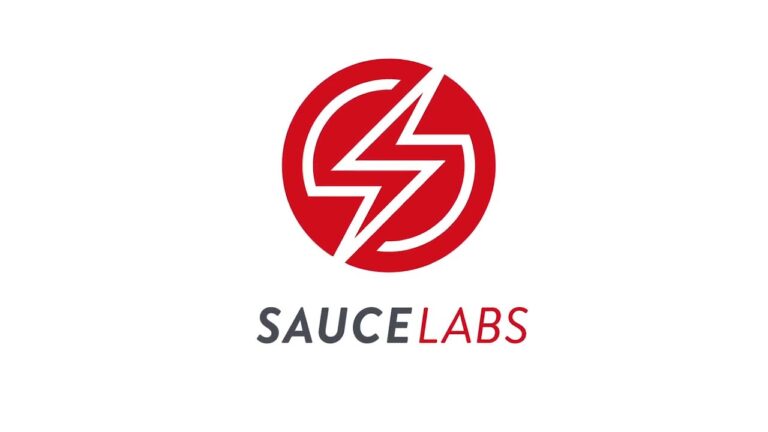15 seconds: that’s the average amount of time most people spend on a website. If you can’t capture their attention in that short window of time, chances are those visitors won’t be coming back. One of the most influential factors that can determine whether a visitor stays or goes is the user experience. Does your site perform well across all browsers and devices? Is it easy to navigate?
These are the kinds of questions Sauce Labs helps you identify through their cloud-based testing platform. With 3 billion tests and counting, they’ve become the go-to automated testing platform that helps thousands of businesses expedite their software development cycles. Sauce School, their official training portal, offers a wide variety of resources for both beginners and experienced test developers. We chatted with Meredith from Sauce Labs to discover more about what makes their testing platform so popular.
Tell us about Sauce Labs and Sauce School. What was the reason behind creating Sauce School?
Sauce Labs is a platform for running tests on your software on all supported browsers, operating systems, and devices, more or less simultaneously. The idea is to speed up your ability to assess quality and ship your code more quickly by supporting parallel testing. We also recently acquired tools that allow for beta testing, API testing, and for error monitoring and crash reporting, which is all part of the new universe of being able to ship your software quickly and minimize risk.
We know that customers who learn how to use automations successfully see the benefits of that, and so our hope was to use a training experience to improve our customers’ ability to write automated tests and use them in their release cycles.
Our Selenium test courses are by language, and we created them for the top three of the five languages that we support. We also provide beginner and advanced materials for specific functionality that Sauce Labs supports.
While Sauce School was started specifically to facilitate growth in automated testing, Sauce Labs actually supports non-automated testing also.
What does your role as Director of Technical Content entail?
As the director of technical content, my job is to help my team create a single source of truth for using Sauce Labs effectively. That includes both Sauce Docs and Sauce School. The goal is to keep most of the conceptual content and reference content in Sauce Docs and use Sauce School specifically for practicing those skills. .
The other component of our work that is a bit unusual for the space is that we work very closely with product design to make sure that the text in the actual app makes sense and creates useful, helpful experiences for our customers. The goal there is to reduce their need to use documentation, except in areas where there’s a level of complexity that can’t be delivered directly in the app.
Who takes your courses?
That’s a really good question. We are still building out our instrumentation component, so we don’t have perfect clarity, but the assumption is that we have a lot of experienced automators who want to better understand how to integrate with Sauce Labs. And then we have another set of folks that are new to automation who are specifically taking the Selenium courses so they can learn how to do the basics and then grow their testing regime from there.
We’ve recently added a couple of courses for our Sauce Connect solution, which is specifically for customers who need to test locally but have firewall rules that won’t allow them to connect to an external server, like Sauce Labs without some kind of secure connection. And then, we also have recently added the API testing course, which is specifically for that feature.
How are the courses laid out?
We start with introductory materials and sort of an opportunity to come to understand the system as a whole.
Next we use this idea of staged disclosure so that people are acquiring a set of skills and then adding on to that set of skills as they progress through the modules.
What do you hope learners gain from their experience?
What I really want is for people to not only understand how to use our functionality, but to feel confident that they’re going to be adding value to their development team through the use of Sauce Labs.
That’s the next big push – to confirm and validate that’s happening. We know that people are learning things, but we haven’t necessarily been able to validate that they feel better about their testing practices as a result of that.
What’s next for Sauce School?
We just kicked off an audit to determine where the content is in both Sauce Docs and Sauce School with the ultimate goal being to concentrate most of that content in Sauce Docs and create a better flow between that and Sauce School. So people who read about some particular thing in the docs can jump over to Sauce School and in a contained environment can perform a practice version of whatever it is in Sauce School.
The other important thing that’s happening is the team is in the process of developing 15 minute experiences for all of our testing options. Our value proposition is that people can do a basic exercise on anything that we’re offering in 15 minutes or less.
Any recommendations for first-time course takers?
Create a free trial license.
Write down your candid assessment of how that experience goes so that we can not only understand how you’re thinking about the problem, but also adapt it to make it better for you and your colleagues.
I also think with any technology it’s important to keep in mind that you can feel like you’re going to mess something up. So I would say, just give it a try. Remember that you really can’t break anything. If things don’t necessarily go exactly the way you want them to, it’s totally OK. It’s all part of the learning process.
How can people enroll?
So the cool thing about Sauce School is there’s no enrollment required. You can just go straight to training.saucelabs.com, kick off a class, and follow the steps. Because we have a free-trial license, you can take any of the courses relatively easily.
And there is a mechanism for providing feedback in the courses themselves in the individual module. So if you encounter anything challenging or confusing you have the ability to send that information to us as part of the experience.



